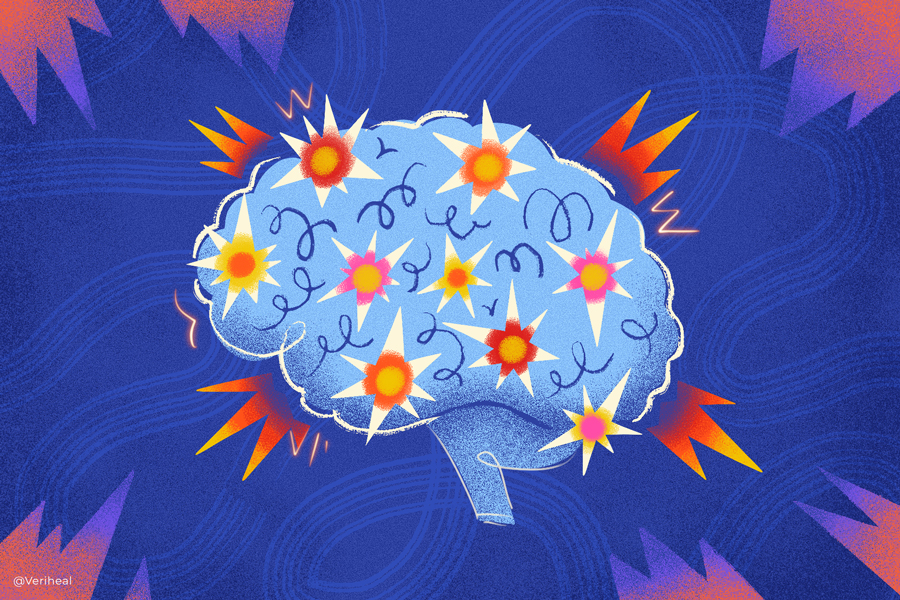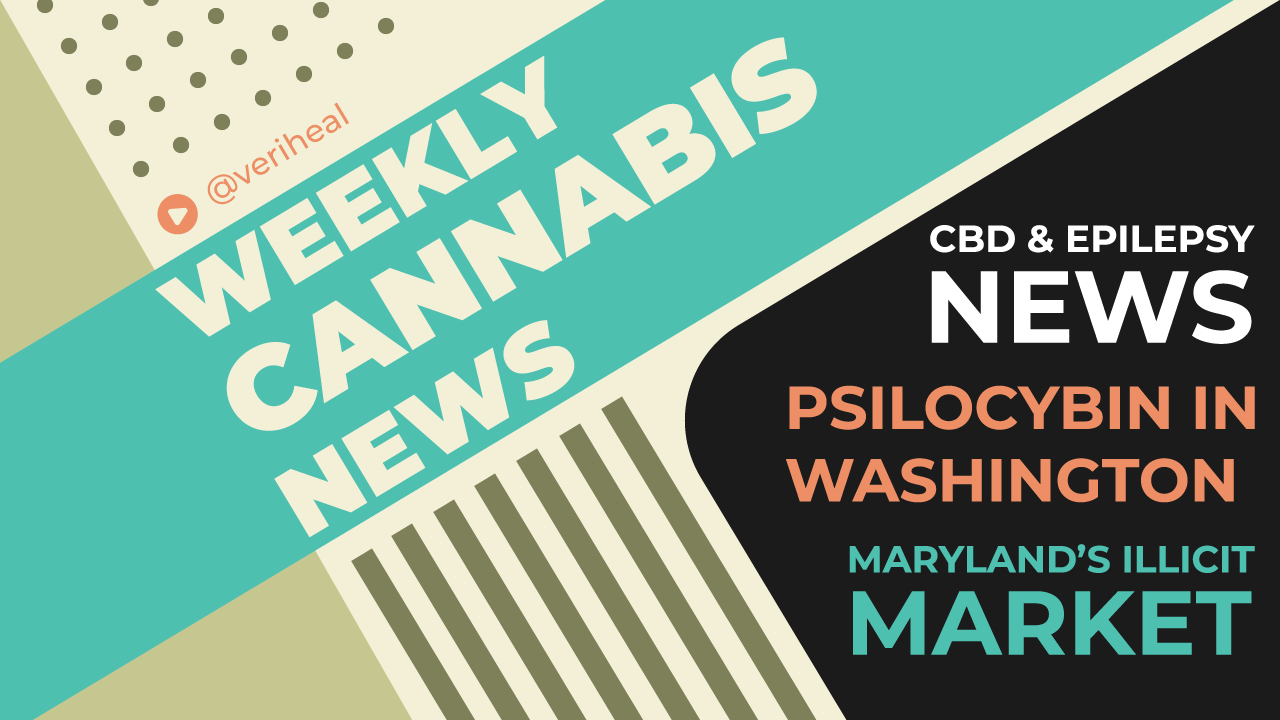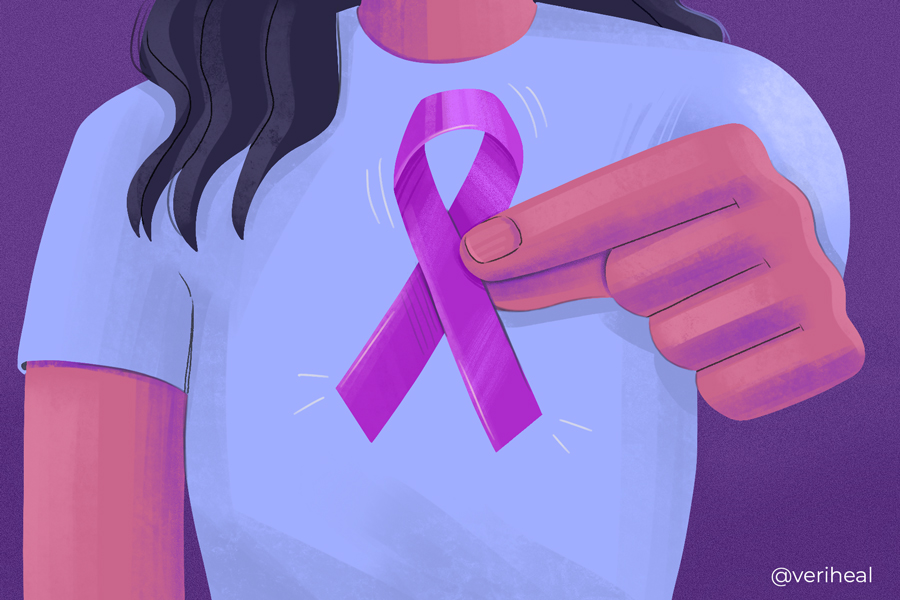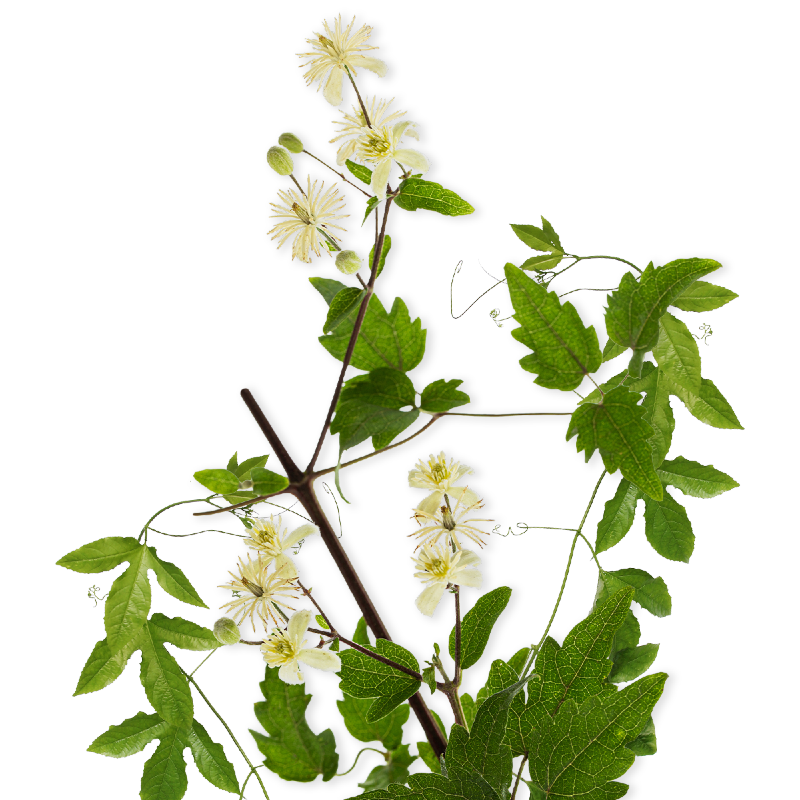Lennox-Gastaut Syndrome (LGS) & Medical Cannabis Treatment

- What is Lennox-Gastaut Syndrome?
- Signs and Symptoms of Lennox-Gastaut Syndrome
- Types of LGS Seizures
- Lennox-Gastaut Syndrome Diagnosis & Risk Factors
- Is Cannabis a Good Treatment Option for Lennox-Gastaut Syndrome?
- Does the Endocannabinoid System Play a Role in Treating Lennox-Gastaut Syndrome?
- What Cannabis Preparations are Suitable for Lennox-Gastaut Syndrome?
- Other Treatment Options for Lennox-Gastaut Syndrome
- Talking to Your Doctor about Lennox-Gastaut Syndrome Treatments
What is Lennox-Gastaut Syndrome?
Of all the types of epilepsy, Lennox-Gastaut syndrome (LGS) is one of the least common seizure disorders.
This rare type of epilepsy accounts for fewer than 5% of all childhood epilepsy cases. LGS most often occurs in children between 3 and 5 and is characterized by different types of seizures (9).
The frequent seizures and abnormal brain activity associated with this condition generally worsen as time progresses. Over time, the cognitive and behavioral symptoms also become more severe.
Although LGS is well-studied, the cause of the disorder remains a mystery in many cases.
However, it is common for LGS to accompany the diagnosis of another form of epilepsy. Many children will experience developmental or intellectual problems before a doctor diagnoses them with LGS (7).
LGS is commonly associated with Dravet syndrome. However, Dravet syndrome is genetic epilepsy, whereas Lennox-Gastaut Syndrome has several causes.
Possible treatment options include brain surgery, prescription medications, and implanted devices. Cannabidiol (CBD) is also emerging as the newest FDA-approved therapy for seizures associated with Lennox-Gastaut syndrome in patients aged two and above (1).
Signs and Symptoms of Lennox-Gastaut Syndrome
The symptoms of LGS depend on the type of seizure experienced by a patient.
As LGS can cause sudden or uncontrollable seizures, brain damage due to falls is a common symptom of this condition. Considering those risks, LGS patients have a mortality rate of 3%-7% within ten years after diagnosis (1).
In cases of tonic seizures, patients commonly report stiffening of the body. Tonic seizures may be difficult to diagnose because they usually happen during sleep.
Atonic seizures, on the other hand, can occur when patients are conscious. Atonic seizures can cause frequent falls due to temporary loss of consciousness and muscle strength. These episodes are called “drop attacks” (1).
Staring episodes can also arise in patients with atypical absence seizures. Atypical absence seizures include sudden muscle jerks typically caused by myoclonic seizures. These seizures can also cause falls and generally involve both sides of the brain (1).
Mental or behavioral challenges may also arise in LGS patients, including behavioral disturbances, developmental delays, and trouble processing information.
Types of LGS Seizures
There are several types of seizures associated with Lennox-Gastaut syndrome. Let’s take a broader look at the symptoms of each kind of LGS seizure (15):
Tonic Seizure Symptoms
- Tense arms, legs, or torso
- Stiffening that impacts both sides of the body
- Frequent falling
- Most often occurs during sleep and may not be noticeable to the patient
Atonic Seizure Symptoms
- Head nodding
- Limb limpness, dropping held items, and falling
- Muscle tone loss with prompt onset
- Muscle jerking
- Sagging eyelids
- Short-term loss of consciousness
Atypical Absence of Seizure Symptoms
- Unawareness, unresponsiveness
- Fast but slight involuntary muscle jerks (myoclonic movements)
- Eye blinking, chewing movements, lip smacking, or small hand movements
- Muscle weakness in the abdomen, arms, legs, or head
Myoclonic Seizure Symptoms
- Sudden, short, involuntary, and shock-like muscle spasms
- May be strong and hard to control
- Spasms that may disrupt a person’s ability to eat, speak or walk
- Partial-body or full-body muscle spasms
- Most often involve the neck, shoulders, upper arms, and face (13)
Lennox-Gastaut Syndrome Diagnosis & Risk Factors
An accurate diagnosis for LGS can be made when a patient exhibits a specific brain wave pattern. This pattern is characterized as 1.5- to 2.5-Hz, with spikes up to 10 to 20 Hertz. Patients with this particular brain wave pattern usually struggle with numerous types of seizures and behavioral and cognitive behavioral challenges (1).
Children aged 2-7 are at higher risk of LGS than older children. Boys also face a higher risk than girls. There is no known connection between LGS and specific races (1).
The three main groups of known causes for LGS are structural, genetic, and metabolic. While the leading cause remains unknown in most cases, certain risk factors do come into play, such as:
- Abnormal brain development
- Acquired traumatic brain injury
- Brain tumor (such as in Tuberous Sclerosis Complex, TSC)
- Genetic conditions such as TSC, West, Ohtahara, or Down syndrome
- Brain infections, such as encephalitis or meningitis
- Metabolic disorders
- Lack of oxygen to the brain
- Stroke
- Severe head injury (7,8)
Routine lab tests and imaging may be used to rule out the presence of other medical conditions that might be prompting the seizures.
To test for LGS, a doctor usually takes a complete blood count and metabolic panel to get a more in-depth overview of your health status. These readings–and several other tests–can inform the doctor of any genetic medical conditions, unusual electrolyte levels, errors in protein metabolism, and kidney or liver problems.
To rule out the chances of other substances causing the LGS, doctors may also recommend a toxicology screening that detects toxins, poisons, and illicit drugs.
Magnetic resonance imaging (MRI) with seizure protocol and computed tomography (CT) scans may also detect structural problems, tumors, or scar tissue in the brain.
Lastly, an electroencephalograph (EEG) with awake and sleep recording is crucial for diagnosis.
Is Cannabis a Good Treatment Option for Lennox-Gastaut Syndrome?
Yes, cannabis can be a good add-on treatment option for Lennox-Gastaut Syndrome.
As a form of treatment-resistant epilepsy, options for LGS patients are constantly widening. Medical cannabis can be used as a form of add-on therapy to help combat LGS symptoms.
Specifically, cannabidiol (CBD) is sometimes used alongside baseline treatment to help minimize drop seizures in children and adults with LGS.
A systematic review of placebo-controlled clinical studies backs the combative effects of CBD on LGS symptoms. Neurologists unveiled this research in 2017 at the 69th Annual Meeting of the American Academy of Neurology (AAN).
According to pediatric neurologist Dr. Anup Patel, CBD shows significant promise for reducing seizures that may be otherwise difficult to control. Patel’s research demonstrated that the anti-inflammatory effects of cannabidiol managed to relieve drop seizures by 50% in some children and adults with little associated adverse events (14).
CBD possesses natural anti-seizure properties and does not cause psychoactivity in consumers compared with tetrahydrocannabinol (THC) (16).
Additionally, the likelihood of experiencing adverse events associated with CBD therapy is low. However, some patients experience side effects such as somnolence or sleepiness, decreased appetite, diarrhea, and nausea.
The clinical and animal data presented to the US FDA led to the development of Epidiolex, a pharmaceutical form of CBD. Epidiolex was granted FDA approval in 2018 (16).
Epidiolex is the first cannabis plant-based, pharmaceutical-grade extract. It is most often recommended for adjunctive therapy for seizures associated with Lennox-Gastaut syndrome in patients aged two and above.
When taken orally, Epidiolex can inhibit or slow down messages or signals in the brain. It can also change calcium levels in the brain that facilitate messages and signals between brain cells. The medicine may also decrease inflammation in the brain.
A follow-up 2019 study published in the Annals of Pharmacotherapy revealed that CBD effectively minimized drop seizures in LGS by 17% to 23%, compared with placebo as add-on therapy to standard anti-epileptic drugs in patients two years of age and older (2).
In the FDA clinical trials for Epidolex, the drug’s use alongside baseline treatment in LGS patients also showed significant reductions in monthly drop seizure frequency compared to placebo groups.
Epidiolex is now prescribed to some patients at a dose of 10 to 20 mg/kilogram/day, given as an oral solution twice daily by mouth.
Does the Endocannabinoid System Play a Role in Treating Lennox-Gastaut Syndrome?
Yes, the endocannabinoid system plays a role in treating Lennox-Gastaut Syndrome.
Epilepsy can cause dysfunction in the endocannabinoid system (ECS) and neuroinflammation. Since the endocannabinoid system (ECS) is an essential hub for neurological function, moderating this complex system shows therapeutic promise.
Cannabis-based treatments may prove helpful in the management of neuroinflammation and epilepsy. In particular, CBD is FDA-approved to possess anticonvulsant and anti-neuroinflammatory properties. As such, CBD offers a host of benefits for epilepsy treatment, as it interacts directly with the ECS (6).
Interestingly, according to the FDA approval document, officials are unsure exactly how cannabidiol exerts its anticonvulsant effect in humans. Alone, CBD does not cause anticonvulsant effects through interaction with cannabinoid receptors (6).
Nevertheless, Epidiolex influences both receptors in the ECS and receptors in the endocannabinoidome(eCBome). The eCBome comprises endocannabinoids, cannabinoid receptors, targets of cannabinoids, and the enzymes responsible for the synthesis and degradation of endocannabinoids (17).
What Cannabis Preparations Are Suitable for Lennox-Gastaut Syndrome?
The US FDA confirms that pure CBD extracts perform well for epileptic seizure control when prescribed by a neurologist (6).
Currently, any other over-the-counter, dispensary-bought, or homemade formulations of CBD are not FDA-approved for the treatment of Lennox-Gastaut Syndrome.
Dispensary products that contain higher amounts of THC are not recommended for young people with developing brains (4). Since LGS primarily affects children, THC products are not prescribed to treat this syndrome.
Additionally, the quality and dosing of over-the-counter products are highly variable and unknown.
In cases where Epidiolex is recommended, a pediatric neurologist prescribes and doses pharmaceutical CBD to treat Lennox-Gastaut syndrome. This neurologist will monitor drug interactions with your baseline treatment, noting how the CBD may bolster the effects of clobazam and other antiepileptic drugs.
Follow the medical advice of your doctor to avoid the unwanted consequences of inappropriately treated or untreated seizures. Pediatric neurologists also routinely monitor your seizure frequency and liver function tests. After considering changes in liver enzymes and seizure frequency, your doctor may adjust your medication to fit your unique needs.
Other Treatment Options for Lennox-Gastaut Syndrome
Controlling seizures is associated with better cognition, mood, alertness, and quality of life. LGS seizures can be troublesome to treat since they don’t usually respond well to anti-seizure medications, and some trial and error is generally involved.
Doctors may attempt to lower seizures by implanting and using a vagus nerve stimulator (VNS). This unique tool is embedded into the chest to transmit electrical energy to the brain via the vagus nerve in the neck (8).
A medical professional may recommend a corpus callosotomy to prevent the seizures from spreading. This operation cuts the corpus callosum: a band of nerve fibers nestled deep in the brain that fuses the two halves (hemispheres) of the brain.
Dietary management is also crucial for seizure control. Surgery may be an option for patients who can’t manage their seizures with medication (1).
Talking to Your Doctor About Lennox-Gastaut Syndrome Treatments
You may discuss your requirements for cannabis medicine with your doctor only after an official diagnosis.
However, over-the-counter cannabis or CBD should not be used as a substitute for doctor-prescribed medications. Though minors can use cannabis in select states, a medical evaluation and recommendation are necessary. The laws surrounding cannabis use in minors with qualifying conditions differ from state to state.
Using medical marijuana and cannabis-based products is not recommended for everyone. It can be hazardous for patients with seizures, potentially worsening existing seizures.
Check out our guide on epilepsy for more detailed information about these precautions.
Note: Veriheal does not intend to give this as professional medical advice. Do not attempt to self-diagnose, or prescribe treatment based on the information provided on this page. Always consult a physician before making any decision on the treatment of a medical condition.
This article was originally published on Feb 26, 2020 and was most recently updated on April 19, 2023.
1. Amrutkar, C., & Riel-Romero, R. M. (2023). Lennox Gastaut Syndrome. In StatPearls. StatPearls Publishing. http://www.ncbi.nlm.nih.gov/books/NBK532965/
2. Chen, J. W., MBA, Borgelt, L. M., PharmD, FCCP, BCPS, & Blackmer, A., PharmD, BCPS, BCPPS, FCCP. (2019). Cannabidiol: A New Hope for Patients With Dravet or Lennox-Gastaut Syndromes—Jeffrey W. Chen, Laura M. Borgelt, Allison B. Blackmer, 2019. Annals of Pharmacotherapy, 53(6). https://journals.sagepub.com/doi/10.1177/1060028018822124
3. (2020, July 31). FDA Approves New Indication for Drug Containing an Active Ingredient Derived from Cannabis to Treat Seizures in Rare Genetic Disease. FDA; FDA. https://www.fda.gov/news-events/press-announcements/fda-approves-new-indication-drug-containing-active-ingredient-derived-cannabis-treat-seizures-rare
4. (2023). What You Need to Know (And What We’re Working to Find Out) About Products Containing Cannabis or Cannabis-derived Compounds, Including CBD. FDA. https://www.fda.gov/consumers/consumer-updates/what-you-need-know-and-what-were-working-find-out-about-products-containing-cannabis-or-cannabis
5. Complementary and Alternative Therapy for Epilepsy. (n.d.). Retrieved March 28, 2023, from https://www.webmd.com/epilepsy/guide/epilepsy-alternative-therapies
6. Getzoff, N., & Ling, X. (n.d.). COMBINED CLINICAL AND STATISTICAL REVIEW. https://www.accessdata.fda.gov/drugsatfda_docs/nda/2018/210365Orig1s000MedR.pdf
7. Lennox Gastaut Syndrome LGS. (n.d.). Epilepsy Foundation. Retrieved March 28, 2023, from https://www.epilepsy.com/what-is-epilepsy/syndromes/lennox-gastaut-syndrome
8. Lennox-Gastaut Syndrome (LGS): Symptoms & Treatment. (n.d.). Cleveland Clinic. Retrieved March 28, 2023, from https://my.clevelandclinic.org/health/diseases/23171-lennox-gastaut-syndrome-lgs
9. Lennox-Gastaut syndrome: MedlinePlus Genetics. (n.d.). Retrieved March 28, 2023, from https://medlineplus.gov/genetics/condition/lennox-gastaut-syndrome/
10. Lennox-Gastaut Syndrome—Symptoms, Causes, Treatment | NORD. (n.d.). Retrieved March 28, 2023, from https://rarediseases.org/rare-diseases/lennox-gastaut-syndrome/
11. Lu, H.-C., & Mackie, K. (2016). An Introduction to the Endogenous Cannabinoid System. Biological Psychiatry, 79(7), 516–525. https://www.biologicalpsychiatryjournal.com/article/S0006-3223(15)00869-0/fulltext
12. Melatonin and Epilepsy. (2014, July 17). Healthline. https://www.healthline.com/health/melatonin-and-epilepsy
13. Myoclonic Seizures. (n.d.). Epilepsy Foundation. Retrieved March 28, 2023, from https://www.epilepsy.com/what-is-epilepsy/seizure-types/myoclonic-seizures
14. Tessman, R., & Uher, M. (n.d.). AAN 69th ANNUAL MEETING ABSTRACT. https://www.aan.com/PressRoom/Home/GetDigitalAsset/12416
15. Types of Seizures. (n.d.). Epilepsy Foundation. Retrieved March 28, 2023, from https://www.epilepsy.com/what-is-epilepsy/seizure-types
16. (2020, March 27). FDA Approves First Drug Comprised of an Active Ingredient Derived from Marijuana to Treat Rare, Severe Forms of Epilepsy. FDA; FDA. https://www.fda.gov/news-events/press-announcements/fda-approves-first-drug-comprised-active-ingredient-derived-marijuana-treat-rare-severe-forms
17. Lu, H. C., & Mackie, K. (2016). An Introduction to the Endogenous Cannabinoid System. Biological psychiatry, 79(7), 516–525. https://pubmed.ncbi.nlm.nih.gov/26698193/








